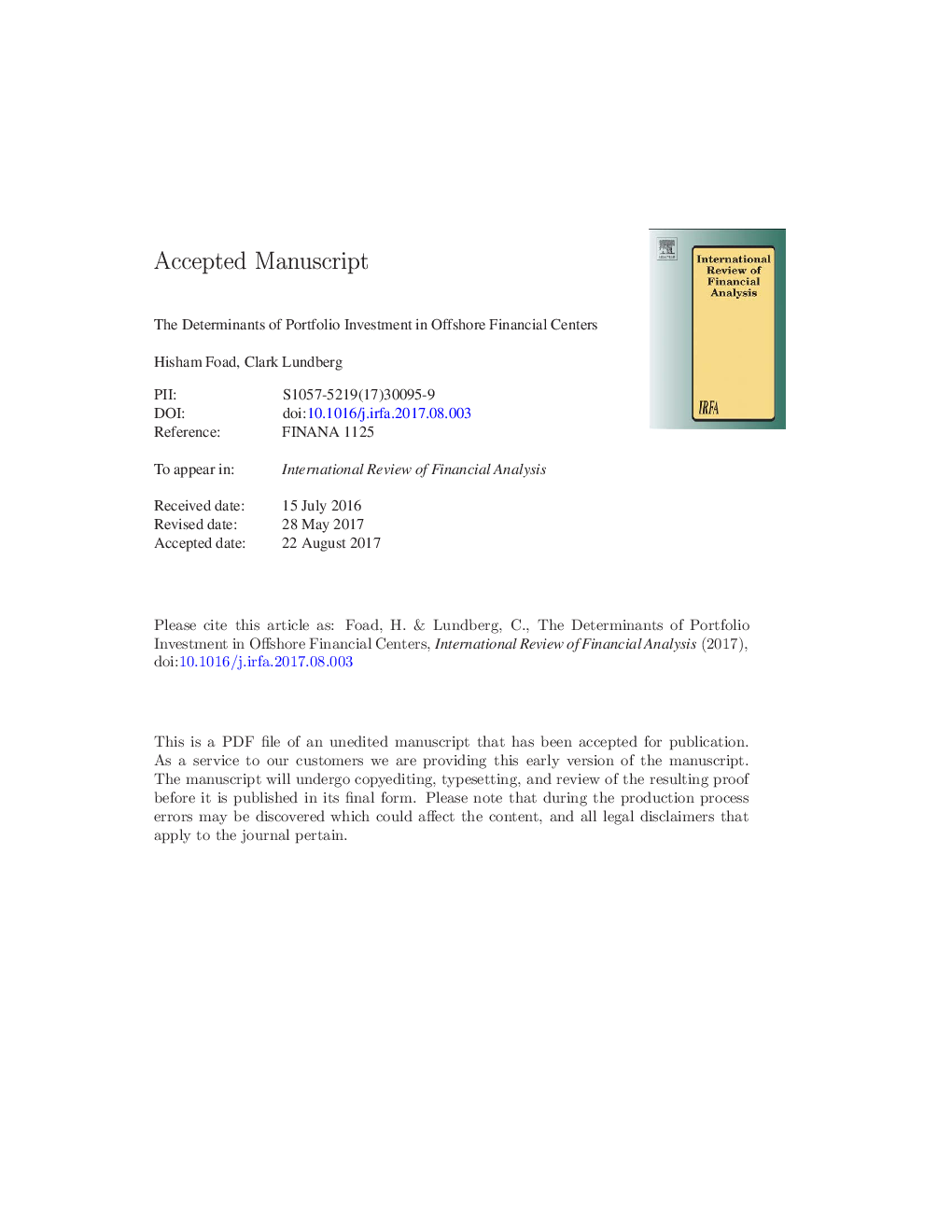| Article ID | Journal | Published Year | Pages | File Type |
|---|---|---|---|---|
| 5084371 | International Review of Financial Analysis | 2017 | 23 Pages |
Abstract
An offshore financial center (OFC) is generally defined as a jurisdiction in which the financial sector is disproportionately larger than the domestic economy. We examine what national level push factors determine a country's investment in OFCs using a panel data set covering 78 source countries investing in over 200 foreign jurisdictions. OFCs are defined using an existing method based on institutional characteristics and fiscal policies as well as with a novel data-driven method based on actual financial positions relative to GDP. We find that OFC investment is driven by various aspects of low profitability in the source country. Source country factors such as inefficient labor markets, weak infrastructure, and competitive markets drive investments toward OFCs. These factors have an even larger impact on OFC investment than corporate tax rates in the source country. This suggests that a country seeking to reduce utilization of OFC's should focus on policies like improving domestic infrastructure and the efficiency of labor markets.
Keywords
Related Topics
Social Sciences and Humanities
Economics, Econometrics and Finance
Economics and Econometrics
Authors
Hisham Foad, Clark Lundberg,
